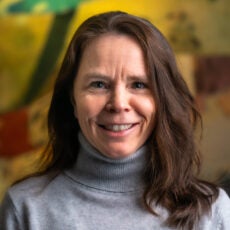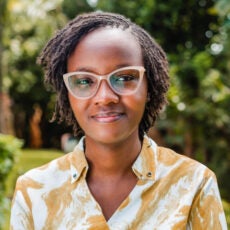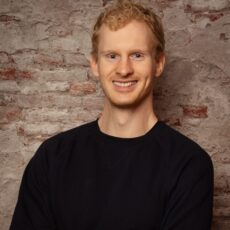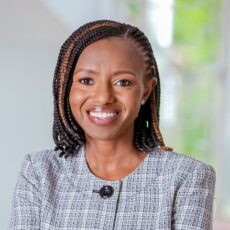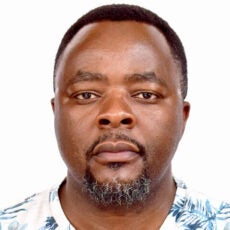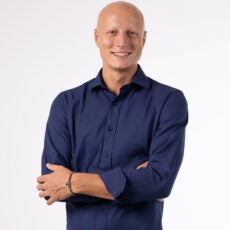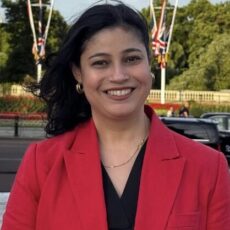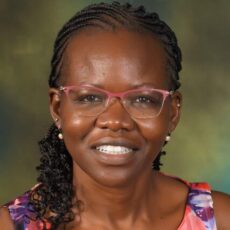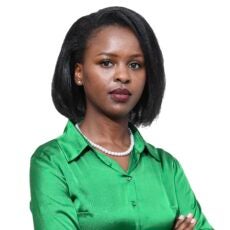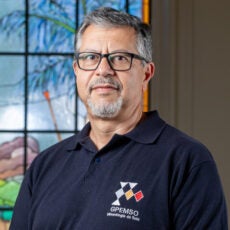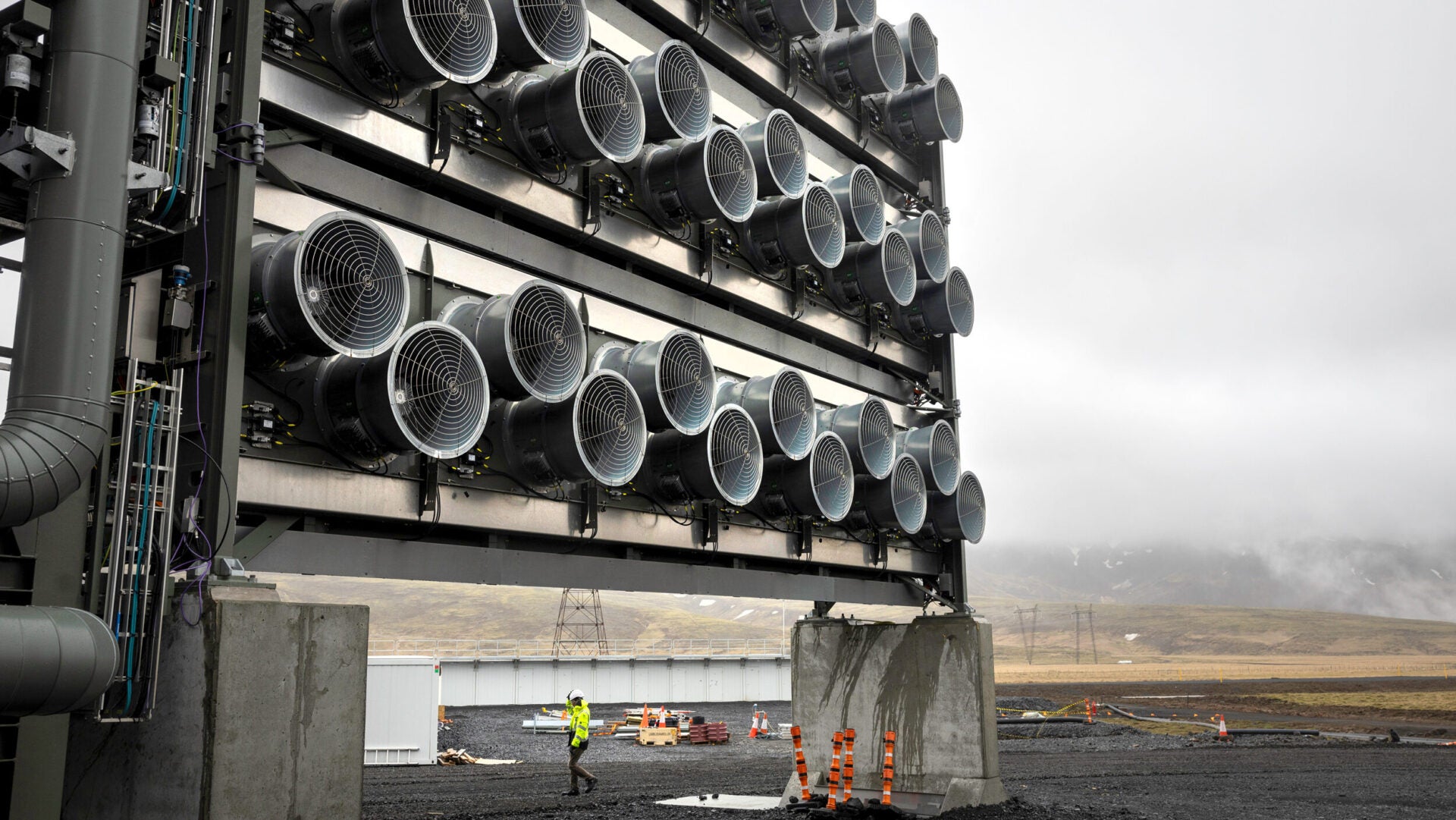
Developing the Next Generation Workforce for Carbon Dioxide Removal (CDR) in Brazil and Kenya
Event Summary
Webinar Agenda
Welcome and Introduction (10 mins)
- Jen Wilcox, University of Pennsylvania
- Overview of the Kenya-Brazil CDR collaborative initiative
Workforce Development & Policy Context (10 mins)
- Abby Lunstrum, University of Pennsylvania
- Real-world CDR examples and fundamental concepts for classroom integration
- Pathways for students to careers in CDR: direct employment, entrepreneurship, government, NGO policy roles, and collaboration within traditional sectors
Industry Voices & Innovations in CDR (60 mins)
- Brief presentations from:
- Flux (Kenya)
- InPlanet (Brazil)
- Octavia (Kenya)
- Cella (Kenya)
- Terradot (Brazil)
- SafiOrganics (Kenya)
Professional Development & Training Opportunities (10 mins)
- Bilha Ndirangu, Jacobs Ladder
- Overview of professional training programs enhancing workforce readiness in Kenya
Regional Perspectives on CDR Workforce Opportunities via University Curriculum and Training (15 mins)
- Academic perspectives from the Technical University of Kenya and the University of São Paulo
- Existing academic programs and curricula – identifying gaps related to CDR
- Strategic industry partnerships for enhanced training and employment
NGO Perspectives on CDR Integration into Climate Change Mitigation Pathways (15 mins)
- Representatives from WRI Kenya and WRI Brazil
- Filling work force gaps and incorporating CDR effectively into climate mitigation strategies across agriculture, energy, and broader decarbonization efforts
Q&A and Discussion (15 mins)
- Audience and speaker interactive session
Closing Remarks (5 mins)
- Jen Wilcox
- Summary of insights and next steps
Speakers
Jennifer Wilcox
Presidential Distinguished ProfessorJen Wilcox is Presidential Distinguished Professor of Chemical Engineering and Energy Policy. She previously served as Principal Deputy Assistant Secretary for the Office of Fossil Energy and Carbon Management at the Department of Energy.
Abby Lunstrum
Research Associate, Clean Energy Conversions LabAbby Lunstrum is a research associate at the University of Pennsylvania. She holds a PhD in Geology from the University of Southern California.
Fiona Mugambi
Head of Growth & Partnerships, Octavia CarbonFiona Mugambi is the Head of Growth & Partnerships at Octavia Carbon, the Global South’s first Direct Air Capture (DAC) company, where the team designs, builds, and deploys low-cost, geothermal-integrated DAC systems.
Benjamin Möller
Senior Scientist, FluxBenjamin Möller is a Senior Scientist at Flux, a pioneering Enhanced Rock Weathering (ERW) company headquartered in Nairobi, Kenya. He is a geologist with a background in petrography, geochemistry, and mining, and leads Flux’s feedstock exploration, and coordinates academic collaborations.
Bilha Ndirangu
Co-Founder, Jacob’s Ladder AfricaBilha Ndirangu is co-founder of Jacob’s Ladder Africa, a non-profit, focused on developing young workforce for the green economy. She is a serial entrepreneur working on a range of green industries across the African continent.
George Mwaniki
Country Director, WRI Kenya; Head of Air Quality, WRI AfricaGeorge Mwaniki is the Country Director for WRI Kenya and Head of Air Quality for WRI Africa. Based in Nairobi, he leads strategic stakeholder engagement and coordination across climate and air quality programs.
Niklas Kluger
COO and Co-Founder, InPlanetNiklas Kluger is the COO and co-founder of InPlanet, where he leads operations with a focus on efficiency, positive climate impact, and scalability.
Miriam Garcia
Senior Climate Policy Manager, WRI BrasilMiriam Garcia is Senior Climate Policy Manager at WRI Brasil. She is part of the Climate team and leads our contributions to the design, implementation and monitoring of climate policies, international climate negotiations and the implementation of climate governance and just transition projects.
Lydia Olaka
Senior Lecturer, Technical University of KenyaLydia Olaka is a senior lecturer at the Technical University of Kenya, Department of Physics, Earth and Environmental Sciences. She is an environmental geologist with expertise in earth systems, climate change adaptation and carbon mitigation, geochemistry, groundwater dynamics in fractured rocks.
Melissa Nyangarisa
Project Engineer, CellaMelissa fosters partnerships that drive the equitable deployment of scalable climate tech solutions. At Cella, she leads initiatives to enhance accessibility to carbon mineralization technology for local communities in Kenya and key stakeholders, including DAC partners and policy agencies.
Laísa de Assis Batista
Feedstock Geologist, TerradotLaísa de Assis Batista is the feedstock geologist in Terradot’s Technology Development division. Her work focuses on assessing the feasibility of geological materials for Enhanced Rock Weathering (ERW) as a carbon removal strategy.
Joyce Wambui Kamande
Co-founder and COO, Safi OrganicsJoyce Kamande is a visionary agripreneur on a mission to elevate the lives of rural smallholder farmers, women, and youth across the African continent. She co-founded Safi Organics Limited, an innovative startup based in Kenya.
Antonio Carlos de Azevedo
Associate Professor of Soil Science, Luiz de Queiroz College of Agriculture ( ESALQ)Antonio Carlos de Azevedo is an Associate Professor in the Department of Soil Science at the Luiz de Queiroz College of Agriculture (Escola Superior de Agricultura Luiz de Queiroz, ESALQ-USP). Currently serving as Associate Professor 3 at ESALQ/USP, he coordinates the “Soil in the School” program.
Jennifer Wilcox
Jennifer Wilcox is Presidential Distinguished Professor of Chemical Engineering and Energy Policy at the University of Pennsylvania, with a home at the Kleinman Center for Energy Policy and the School of Engineering and Applied Science. At Penn, she oversees the Clean Energy Conversions Lab.
Wilcox also works with Isometric as their Chief Scientist and is a senior fellow at the World Resources Institute, where she leverages her expertise to help accelerate policy support and investments in research, development, and deployment of industrial decarbonization and carbon removal solutions in order to achieve net-zero emissions by 2050.
Most recently, Wilcox served as Principal Deputy Assistant Secretary for the Office of Fossil Energy and Carbon Management at the Department of Energy. Before coming to Penn, she was the James H. Manning Chaired Professor of Chemical Engineering at Worcester Polytechnic Institute.
Wilcox’s research takes aim at the nexus of energy and the environment, developing both mitigation and adaptation strategies to minimize negative climate impacts associated with society’s dependence on fossil fuels. This work carefully examines the role of carbon management and opportunities therein that could assist in preventing 2° C warming by 2100. Carbon management includes a mix of technologies spanning from the direct removal of carbon dioxide from the atmosphere to its capture from industrial, utility-scale exhaust streams, followed by utilization or reliable storage of carbon dioxide on a timescale and magnitude that will have a positive impact on our current climate change crisis.
Funding for her research is primarily sourced through the National Science Foundation, Department of Energy and the private sector. She has served on a number of committees including the National Academy of Sciences and the American Physical Society to assess carbon capture methods and impacts on climate. She is currently a member of the Energy & Environmental Science Journal Editorial Board. She is the author of the first textbook on carbon capture and, most recently, the CDR Primer. In 2023, she was named one of the TIME 100 Climate.
Having grown up in rural Maine, Wilcox has a profound respect and appreciation of nature, which permeates her work as she focuses on minimizing negative impacts of humankind on our natural environment.
Abby Lunstrum
Abby Lunstrum is a research associate at the University of Pennsylvania. She holds a PhD in Geology from the University of Southern California.
Abby has over a decade of experience studying and implementing solutions to global environmental problems, ranging from geologic carbon sequestration to renewable energy development. Her academic training is in aquatic geochemistry and biogeochemistry, with a focus on ocean carbon cycling, mineral weathering, and alkalinity generation in both natural and engineered systems. In addition to earth science research, she has worked as a wind energy analyst at Det Norske Veritas, and as a marine policy fellow at the National Oceanographic and Atmospheric Administration’s Office of International Affairs.
Abby holds a BS in Ecology from the University of Washington, and a MS in Environmental Science from the University of Virginia.
Fiona Mugambi
Fiona Mugambi is the Head of Growth & Partnerships at Octavia Carbon, the Global South’s first Direct Air Capture (DAC) company, where the team designs, builds, and deploys low-cost, geothermal-integrated DAC systems. She works at the intersection of technology, policy, and climate justice to advance locally led carbon removal. A founding member of Carbon Removal Kenya and the Global South CDR Coalition, Fiona champions a future where the Global South is actively shaping and scaling carbon removal through fair, cost-effective solutions rooted in regional priorities.
Benjamin Möller
Benjamin Möller is a Senior Scientist at Flux, a pioneering Enhanced Rock Weathering (ERW) company headquartered in Nairobi, Kenya. He is a geologist with a background in petrography, geochemistry, and mining, and leads Flux’s feedstock exploration, coordinates academic collaborations, and supports the implementation of field trials and deployments.
Bilha Ndirangu
Bilha is a serial entrepreneur working on a range of green industries across the African continent. Her work is at the intersection of technology, energy, climate action, positioning Africa as an investment destination for the green economy, identifying and scaling relevant technologies, and preparing its youth to provide the requisite skills mix.
She is currently the CEO of Great Carbon Valley, a systems integrator company developing Direct Air
Carbon Capture & Storage (DACCS), and green industry projects in East Africa. She is also a co-founder of Jacob’s Ladder Africa, a non-profit, focused on developing young workforce for the green economy.
Previously, she was the CEO of Africa’s Talking (a communications and payments technology company), where she expanded the company into 20 markets in African countries.
Bilha also worked at Dalberg, where she launched the Nairobi office and advised clients on various African challenges, including energy, agriculture, and education.
She serves on several boards, including Climate Breakthrough, Global Development Incubator, and beVisioneers (The Mercedes-Benz Fund). Bilha has been recognized on the Choiseul 100 Africa 2022 ranking, is a Desmond Tutu Fellow, and was awarded the Woman of Firsts- Excellence in Education Award by CMMI.
Bilha holds a degree in Electrical Engineering with a minor in Economics from MIT and is a Yale Emerging Climate Leaders Fellow.
George Mwaniki
Dr. George Mwaniki is the Country Director for WRI Kenya and Head of Air Quality for WRI Africa. Based in Nairobi, he leads strategic stakeholder engagement and coordination across climate and air quality programs. With over 15 years of experience, he has supported governments and institutions in 25+ African countries to access climate finance and implement climate and environmental solutions. Previously, he consulted for UNEP, UNFCCC, IFAD, and others. He holds a Ph.D. in Environmental Science from Washington State University and is widely recognized for advancing evidence-based, locally grounded climate action and policy innovation across Africa.
Niklas Kluger
Niklas Kluger is the COO and co-founder of InPlanet, where he leads operations with a focus on efficiency, positive climate impact, and scalability. With a strong passion for regenerative and science-based solutions, Niklas combines strategic vision with practical execution to drive InPlanet’s mission of accelerating carbon sequestration through the application of rock powder in tropical soils. He studied Environmental Engineering in Berlin and Munich and completed a postgraduate exchange at ESALQ/USP in Brazil, focusing on soil studies and regenerative agriculture.
Miriam Garcia
Miriam Garcia is Senior Climate Policy Manager at WRI Brasil. She is part of the Climate team and leads our contributions to the design, implementation and monitoring of climate policies, international climate negotiations and the implementation of climate governance and just transition projects.
Before joining WRI Brasil, Miriam led CDP’s public policy area for Latin America, both for national and sub-national governments, with a focus on transparency and accountability. She also has experience in third sector organizations in the area of sustainable development in France and biodiversity conservation in Brazil, as well as working in applied research at the Institute of Development and Sustainability (IDOS) in Germany. Her areas of expertise include global climate governance, sustainable finance, multisectoral engagement and project management.
Miriam Garcia holds a PhD from the Institute of International Relations at the University of São Paulo (IRI-USP). She also holds a master’s degree in International Relations, with an emphasis on Sustainable Development and the Environment, from the Institut d’Études Politiques de Paris (Sciences Po).
Lydia Olaka
Lydia Olaka is a Senior lecturer at the Technical University of Kenya, Department of Physics, Earth and Environmental Sciences. She is an Environmental Geologist with expertise in earth systems, climate change adaptation and carbon mitigation, geochemistry, groundwater dynamics in fractured rocks. She teaches undergraduate and graduate courses and has supervised several Masters and PhD Students. She graduated from Potsdam University, Germany and was a Postdoc Fellow in the Volkswagen Foundation, Africa Program.
Together with her student, they pioneered studies on carbon sequestration in basalt rocks in the Kenya Rift since 2018. She has also researched on a broad range of topics including climate reconstruction from 10,000 years to modern in East Africa, groundwater dynamics and flow through the fault dominated Kenya rift.
She is passionate about training the next generation through, teaching, training and mentorship.
Melissa Nyangarisa
Melissa fosters partnerships that drive the equitable deployment of scalable climate tech solutions. At Cella, she leads initiatives to enhance accessibility to carbon mineralization technology for local communities in Kenya and key stakeholders, including Direct Air Capture (DAC) partners and policy agencies. With a background in engineering and marine research science, she brings a unique blend of technical expertise and environmental insight to her work.
Laísa de Assis Batista
Laísa de Assis Batista is the feedstock geologist in Terradot’s Technology Development division. Her work focuses on assessing the feasibility of geological materials for Enhanced Rock Weathering (ERW) as a carbon removal strategy. She holds a PhD in igneous and metamorphic petrology and is currently a postdoctoral researcher in energy and decarbonization at the University of São Paulo (USP). She also serves on the national board of the Brazilian Association for Women in Geosciences.
Joyce Kamande
Joyce Kamande is a visionary agripreneur on a mission to elevate the lives of rural smallholder farmers, women, and youth across the African continent.
Nine years ago, Joyce embarked on a hands-on journey to transform the economic landscape for those laboring on Africa’s depleted soils. Armed with a Master’s Degree in Procurement and Logistics from the prestigious Jomo Kenyatta University of Agriculture and Technology (awaiting graduation), she seamlessly blended her procurement expertise with an unwavering commitment to environmental sustainability.
A pivotal figure in her legacy is the co-founding of Safi Organics Limited, an innovative startup based in Kenya. This groundbreaking company harnesses cutting-edge hardware technology and proprietary recipes, validated by the esteemed Massachusetts Institute of Technology (MIT). Safi Organics’ mission is to decentralize fertilizer production at the village level, empowering local labor and utilizing available residues. Through this pioneering approach, Safi Organics breathes life into rural communities, fostering job creation, waste recycling, and opening new avenues for income generation.
Joyce’s stellar career has earned her numerous accolades, including recognition as an MIT Legatum Foundry Fellow, a Mandela Washington Fellow, 100 Meaningful Business Leaders, Ishow Finalist, African Women Entrepreneurship Innovation Young Entrepreneur finalist, and a Thought For Food Fellow, Bayer Empowerment Award Winner, One Young World Ambassador among other honors. Not content with personal success, Joyce actively contributes to various projects, such as the Rallying Cry Project serves as an active Rotary Member, and currently holds the position of New Generation Directorate in her local club. Additionally, she mentors aspiring startups at Accenture, and participates in part-time contracts with ASENTI, empowering students at the Pan African University Institute for Basic Sciences, Technology, and Innovation (PAUSTI) through knowledge transfer.
Beyond her entrepreneurial endeavors, Joyce Kamande is more than an agripreneur; she is a catalyst for change, a beacon of inspiration, and an unwavering force for progress across Africa’s rural heartlands. Her extensive travels and studies in East Africa, Egypt, Senegal, Boston, and Detroit through the MIT Legatum Center have enriched her perspective. Joyce is not just an individual; she embodies a transformative force, a visionary, and a driving influence behind a more prosperous and sustainable Africa. With unyielding determination, she plants the seeds of empowerment, ensuring a brighter future for generations to come
Antonio Carlos de Azevedo
Antonio Carlos de Azevedo is an Associate Professor in the Department of Soil Science at the Luiz de Queiroz College of Agriculture (Escola Superior de Agricultura Luiz de Queiroz, ESALQ-USP). He holds a B.Sc. in Agronomy from UNESP-FCAVJ (1990), an M.Sc. in Agronomy from UFRGS (1993), and a Ph.D. in Agronomy from Purdue University (2001). He also completed a postdoctoral fellowship at ESALQ-USP in 2006 and earned his Livre-Docente title from the same institution in 2014. Currently serving as Associate Professor 3 at ESALQ/USP, he coordinates the “Soil in the School” program, an initiative dedicated to promoting soil science education in primary and secondary schools.
